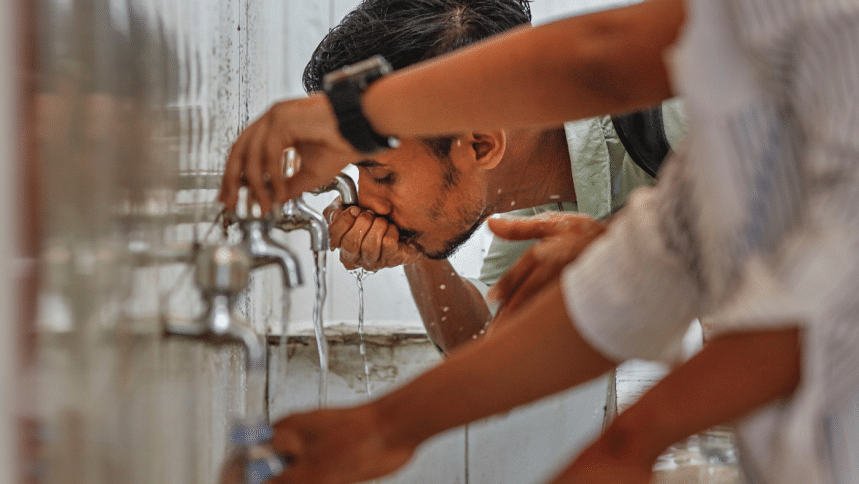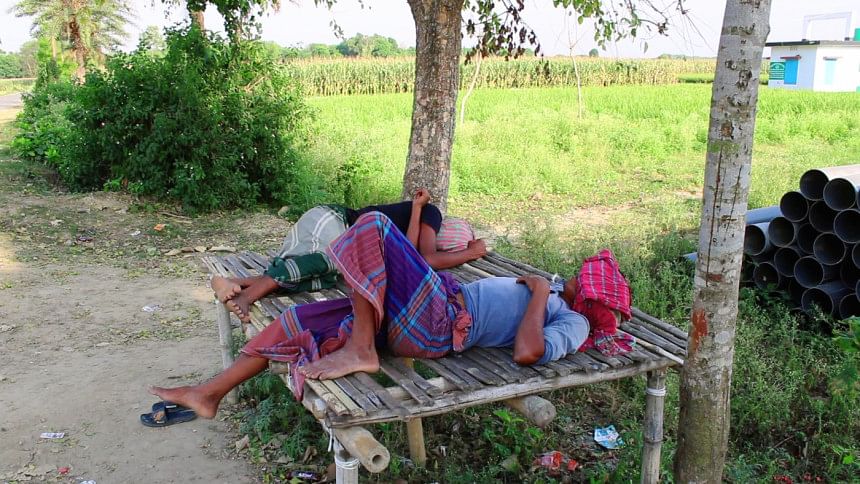Dos and Don’ts during a heatwave
A severe heatwave is disrupting the lives of people in different parts of the country. Besides, high humidity in the air is making life unbearable for many.
Jashore today overtook Chuadanga to record the highest temperature in the country at 42.6ºC. The maximum temperature in Dhaka on Friday was 38.4ºC.

As people are struggling, the Meteorological Department today issued a heatwave warning for the country for the next five days. Meanwhile, the government has decided to keep all public and private schools -- both primary and secondary -- closed from April 21 to 27.
The combination of high heat and humidity can be deadly and may lead to many unexpected health issues, say experts. From heat stroke, brain disorders to depression, high humidity can affect your health in many ways.
It is considered a mild heatwave if the temperature rises to 36 to 38ºC. 38 to 40ºC is called moderate and 40 to 42ºC is called severe heatwave.

After that, if it rises above 42ºC, it is called an extreme heatwave.
Symptoms of heatstroke
Dr Lenin Chowdhury, a public health specialist, told The Daily Star about the main symptoms of heatstroke.
"When the body temperature rises in extreme heat, water, fluids and salts drain out from the body, which lowers our blood pressure. At the same time, the pulse rate increases. The body feels tired and the head feels dizzy. This can cause nausea and vomiting. Blurred vision may occur in some people. The head starts spinning. Some people also talk incoherently. These are the main symptoms of heatstroke," he said.

"Some people may lose consciousness if they have a heat stroke. If they lose consciousness, they should be taken to hospital immediately," he added.
What to do
● Stay Hydrated. Carry water with you when going outside.
● Carry an umbrella for shade.
● Use sunscreen with SPF to protect your skin.

● Avoid crowded places.
● Drink water and ORS at regular intervals throughout the day.
● Monitor urine output - if the colour changes or the amount decreases, drink more fluids
● Wear loose-fitting cotton clothing.

● Limit outdoor activity for the elderly, pregnant women, children, and those with chronic illnesses.
● Keep animals in shades and give them water to drink.
What not to do
● Drinking cold water to quench thirst in the summer is not advisable. Dr Lenin explained the reason: "Some opportunistic germs live in the upper part of the respiratory tract in our throat. They attack when they get favourable conditions. When the throat suddenly gets cold water when it is hot around, the temperature of the throat drops a lot. These germs then become active."
● Don't take cold showers. A drastic temperature dip can be a shock to your system. Opt for lukewarm water for a shower.
● Don't eat heavy and spicy food. Heavy meals might be too taxing for your digestive system. Eat lighter food.
● Avoid dehydrating drinks. Caffeine can dehydrate your body.
● Avoid strenuous activities when the outside temperature is high.

 For all latest news, follow The Daily Star's Google News channel.
For all latest news, follow The Daily Star's Google News channel. 












Comments